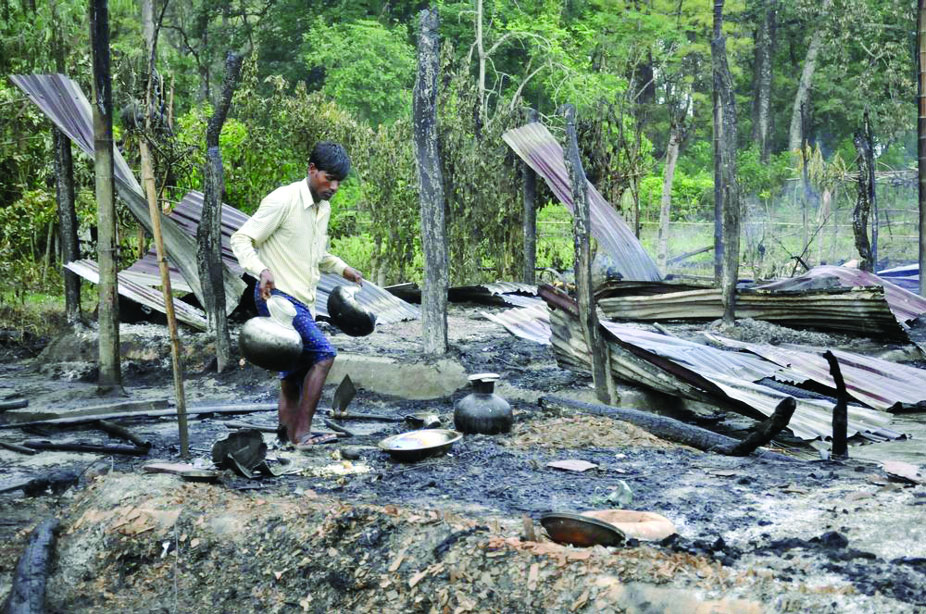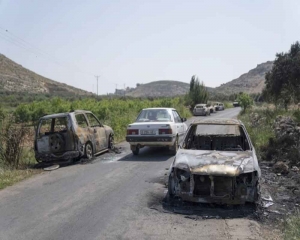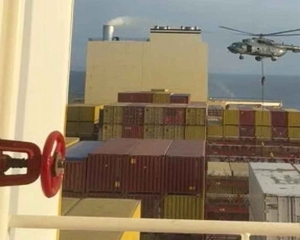Erosion of land might not only mean a loss of livelihood but, sometimes, even lives, says Anup Sharma
Ajiran Nesa is, as they say, caught between the devil and the deep blue sea. She exemplifies how climate change is the main cause of large-scale displacement in some areas of Assam leading to conflict due to increasing pressure on land.
In her 42 years of existence, Ajiran has changed many homes due to erosion of land and at least two rounds of communal violence — the last being the one between the indigenous Bodos and
Bengali-speaking Muslims in 2014, where she lost her six-year-old daughter to gun fire by strangers. Now a resident of Dhupguri village near Barpeta district’s commercial hub, Barpeta Road (Simlaguri), Ajiran never complained about the way she lived her life or how the Almighty wove her fate until 2014.
“If my father had not lost our house and agricultural land to erosion, we would not have gone to Baksa district. My daughter would have been alive today. Children are the gifts of Allah and if you lose them, there is nothing to live for in this world,” said Ajiran, wiping her tears.
Born in Jakhalabandha Char in Barpeta district, she witnessed the wrath of river Brahmaputra for the first time when she was seven. “I still remember how the river first eroded our agricultural land and then our home. We shifted to another village and lived with our relatives for a few months until my father took us to Nonke Khagrabari village in the same district. He bought some land on the bank of river Beki with his savings and borrowings from relatives,” she said and went on to add, “It took time for us to build a home but we had a good life there. My father grew vegetables, lemons and started cultivating areca nuts. The land of Baksa district, close to the foothills of Bhutan, is good especially for growing areca nuts. Traders from West Bengal used to come to buy them. Everything was going well and I got married to Habibur Rahman.”
“My husband’s family also had an areca nut plantation. He also lost his land and house, which forced us to shift to another place nearby. Every time our land was eroded, we had to start afresh. When my husband lost his land in 2004, we did not have money to buy it again. He started to catch fish in the river and sell it in the local market. We still managed to live a happy life though,” she said.
Barpeta and Baksa districts of Western Assam witnessed the worst-ever floods in 2004 after excess water was released from the reservoir of a hydro-power project in neighbouring Bhutan, inundating paddy fields across large swathes in the two districts and washing away homes leading to a large-scale displacement in the area.
Ajiran and her family were among the victims of the 2004 floods. They spent several days in relief camps set up by the government, returning to where their house stood after the water receded. While trying to cope with the impact of floods, Ajiran never imagined that the worst in her life would come a decade later.
It was Friday, May 2, 2014. Her husband had just returned home from the river with the day’s catch to be sold in the evening market. Around 3 pm, the people of the village heard some gunshots being fired. The villagers initially thought that it was the forest guards firing to chase away wild elephants that often raid the paddy fields in the village. The indifference soon turned into dread as they saw some masked men firing randomly at the villagers and setting their houses on fire.
“We could not think of anything. I just heard my husband shouting ‘run’. I looked for my daughters and told them to rush. Within minutes we saw the villagers shouting and running in different directions to save their lives, some falling on the ground hit by the bullets. I jumped into the river and started swimming until I reached the other end. I looked everywhere but my youngest girl remained missing,” Ajiran said.
More than 30 people including women and children were massacred by armed extremists. Ajiran’s search for her missing daughter ended the next day, when the district administration handed them her bullet riddled body. She was hit by a spray of the militants’ bullets while running for her life.
“We got the compensation for my daughter and also for the burnt house but can that bring her back to life? No, nobody can. Who do I blame this for? It is perhaps written in my fate. If only our land had not been eroded...” she sighed.


























